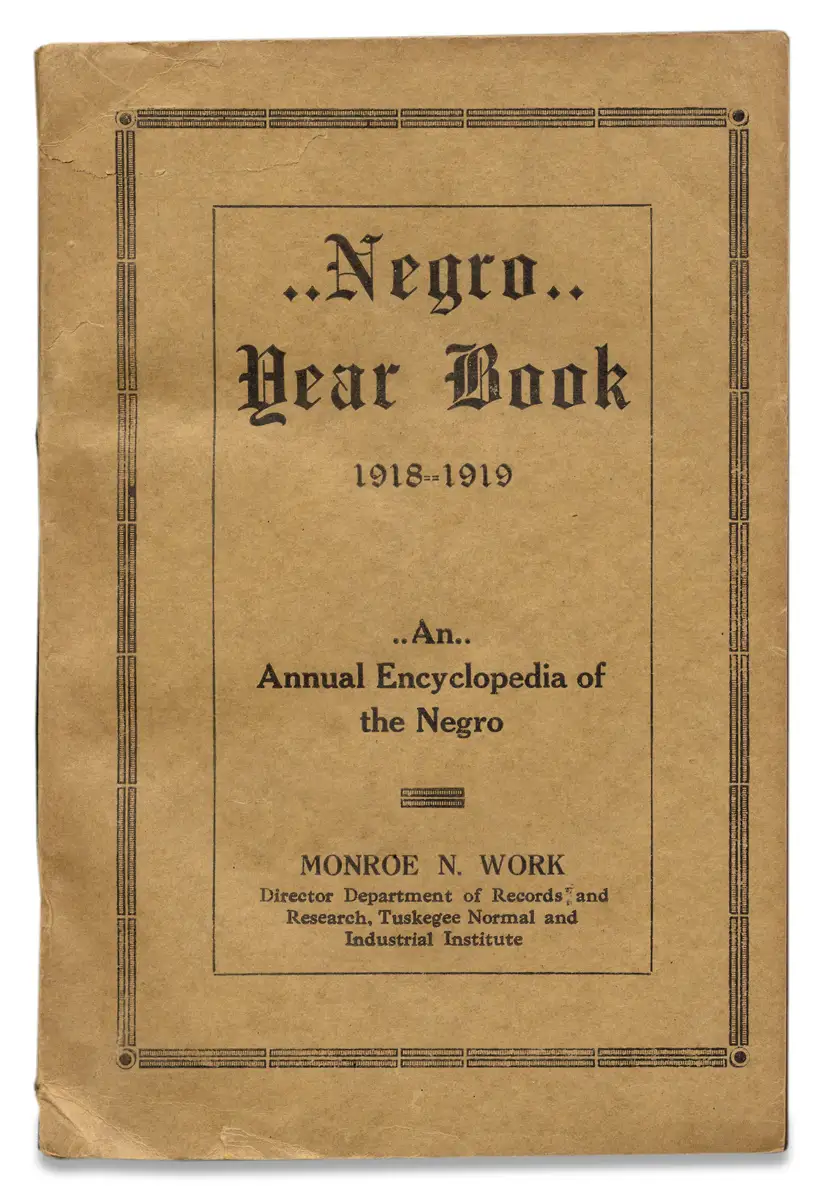On December 27, 1904, a significant event took place that would have a lasting impact on African American history. Monroe Nathan Work, a prominent scholar and activist, married Florence Evelyn Hendrickson. Little did they know that their union would lead to the creation of a groundbreaking publication that would celebrate and document African American achievements - "The Negro Year Book."
Monroe Nathan Work, driven by his passion for education and social justice, recognized the need for a comprehensive resource that would chronicle the accomplishments of African Americans. With the invaluable support of his wife, Florence, he embarked on a mission to compile an annual encyclopedia that would serve as a testament to the achievements of the African American community.
"The Negro Year Book" became a labor of love for Work and his wife. It aimed to provide a comprehensive overview of the progress and contributions made by African Americans in various fields, including education, politics, arts, and sciences. This publication served as a powerful tool to counter the prevailing narratives of racial inferiority and to showcase the immense talent and resilience of African Americans.
Over the years, "The Negro Year Book" became a trusted resource for scholars, activists, and individuals seeking to learn about the rich history and accomplishments of African Americans. It served as a testament to the indomitable spirit of a community that had faced immense challenges and adversity throughout history.
In addition to "The Negro Year Book," Monroe Nathan Work's dedication to scholarship and research led him to publish "A Bibliography of the Negro in Africa and America" in 1928. This monumental work contained over 17,000 entries, making it a comprehensive resource for studying the African diaspora and the contributions of African Americans.
The impact of Work's publications was profound. Reviewers hailed "The Negro Year Book" as "absolutely indispensable" and regarded it as "a monument of which any race may well be proud." Its significance was recognized not only within the African American community but also by scholars and individuals interested in African American history and culture.
The enduring legacy of "The Negro Year Book" is evident in its reprinting in 1965. This act of preservation ensured that future generations would have access to this invaluable resource and continue to learn about the achievements and struggles of African Americans.
Monroe Nathan Work's dedication to documenting African American history and culture through his publications was a testament to his unwavering commitment to social justice and equality. His work paved the way for future generations of scholars and activists to continue the important task of preserving and celebrating African American achievements.

Comments